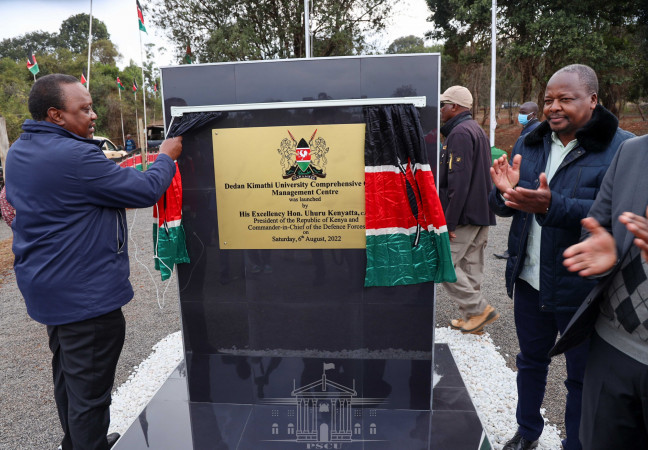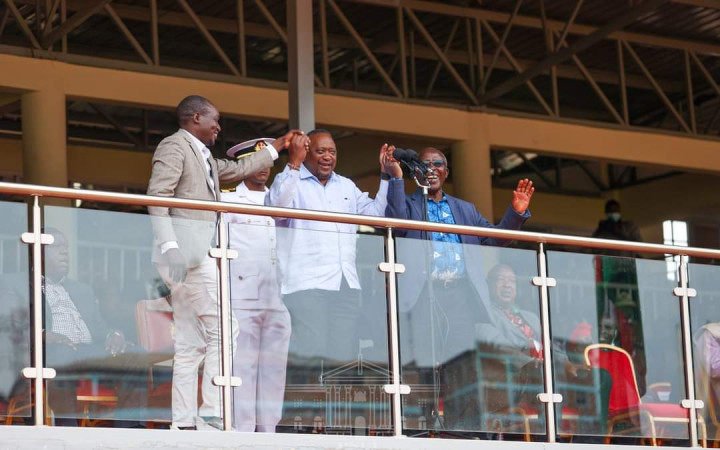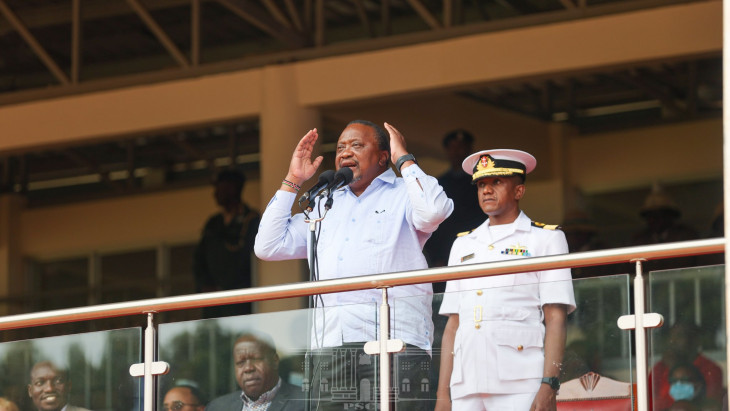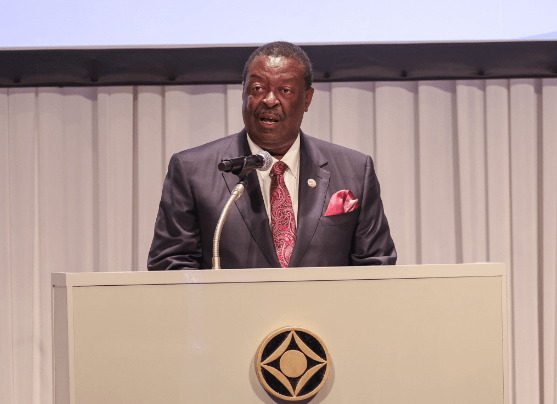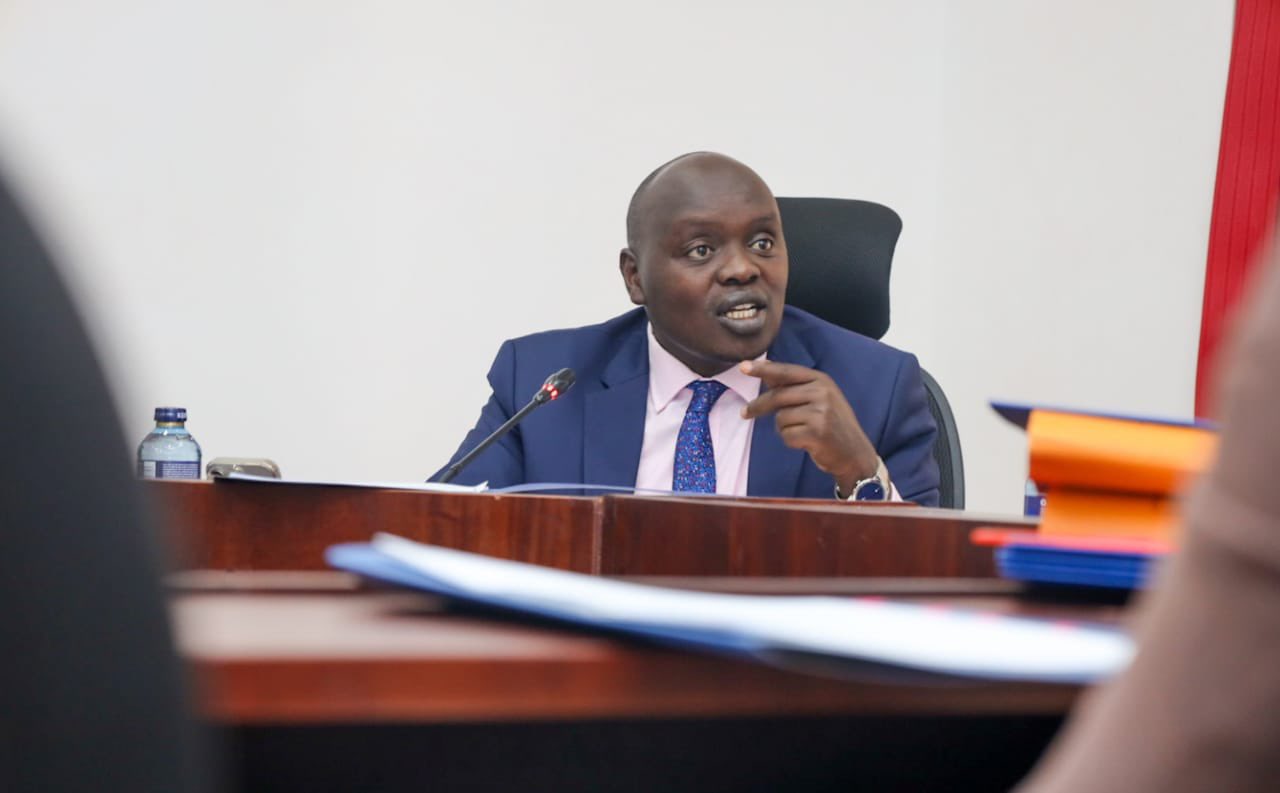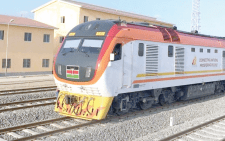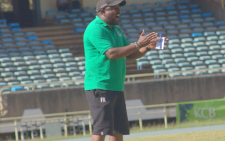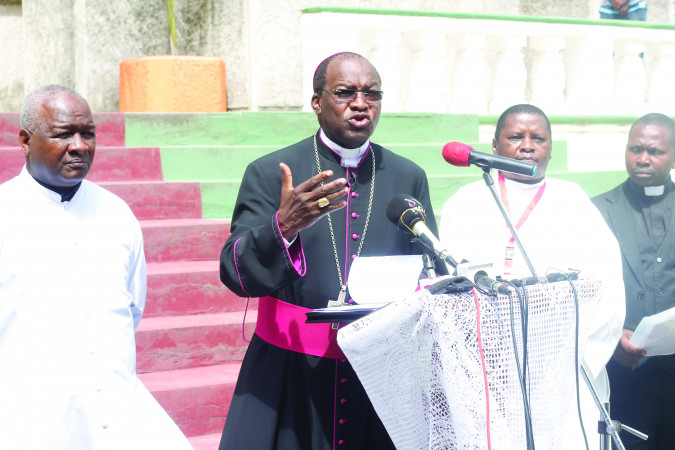Why Mombasa could become a parallel state of drug cartels
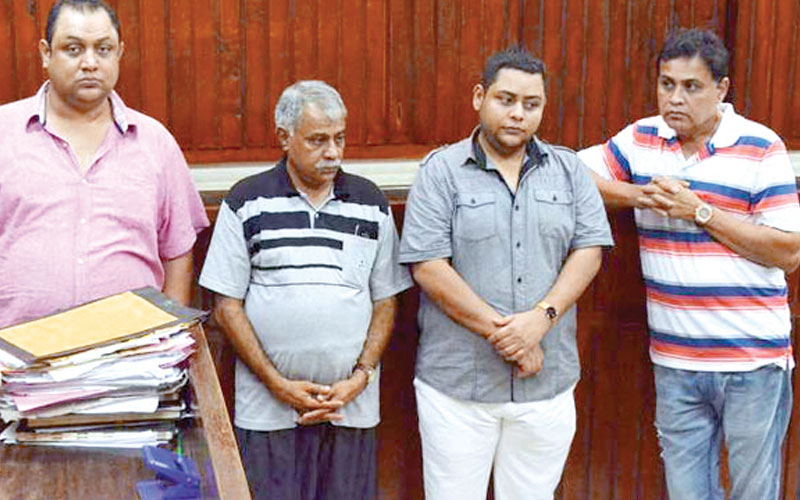
Ibrahim Akasha, the second son of Kenya’s notorious slain drug baron who is on trial for drug trafficking in a US court will know his fate today.
The verdict will certainly bring to an end an inglorious chapter of the family’s life that has prominently featured in the global drug syndicate.
In August, Ibrahim’s elder brother Baktash Akasha, was sentenced to 25 years in prison after pleading guilty to conspiracy to import heroin and methamphetamine into the US.
Methamphetamine is a highly addictive and illegal stimulant drug, which according to the Medical News Today website, is used for its powerful euphoric effects that are similar to those of cocaine.
The effect of “chalk” as it is commonly referred to on the street, lasts longer than cocaine.
When the family patriarch Ibrahim Akasha (senior), was killed in the city of Amsterdam in 2000, many people thought the elaborate underworld drug trade empire that controlled drug trade across four continents— Africa, Asia, Europe and America— had crumbled. To their surprise the heirs quickly stepped into his shoes.
The Akashas could be gone, but a network of drug trafficking syndicate that runs deep in Mombasa certainly remains. It is alive and kicking with more money, power and notoriety to protect its evil and trans-continental territory.
Despite government effort to dismantle the network and eradicate drug trade in coastal city over the years, there has been little success. Ironically, the more pronouncements and vows by the government—and even from President Uhuru Kenyatta—the network keeps growing bigger, smarter and bolder.
Those behind the vicious drug ring have been linked to numerous incidences of killings, kidnappings and intimidation.
That the drug trafficking syndicate has spread its tentacles even in government is worrying. It wields a lot power in critical state agencies, some of which are tasked with fighting the same vice that they now thrive on.
The evidence of its growing influence is its ostentatious presence in Mombasa and Nairobi’s posh estates where known drug lords can be seen driving around in top-of-the range and unregistered cars.
Simply untouchable
In January 2015, former Mombasa County Commissioner Nelson Marwa claimed the barons shipping drugs within Coast region were using police vehicles and ambulances.
He revealed that some senior police officers were “receiving weekly stipend from drug barons to offer them protection”.
For the past 10 years, the government has invested a lot of resources and energy in the fight against the menace in Coast region. It has even established a drug rehabilitation center, bought more patrol boats for police, set up the Kenya Coast Guard Services and funded the methadone programme for addicts. There has, however, been little success near zero impact in taming the menace.
On the contrary, more drugs are flowing into the country, turning thousands of young people into zombies.
For instance, on November 29, 2010, retired President Mwai Kibaki ordered the restructuring of the anti-drugs police unit to give it teeth to go after powerful individuals linked to the illegal trade.
This, too, came to naught. The findings of the probe were never made public.
On June 10, 2013, President Kenyatta also ordered police to immediately arrest and deport foreigners suspected of engaging in drug trafficking.
“Time for talk has ended and that decisive action is needed to fight the vice,” he told the then National Authority for the Campaign Against Alcohol and Drug Abuse (Nacada) officials.
He expressed frustration that the fight against drug and alcohol abuse had been too much of talk and short on action.
Clean conscience
In 2014, the state blew up a drug-laden vessel, MV AL Noor that was intercepted with drugs worth Sh1.3 billion by the Kenya Naval forces. A year later, a yacht- Baby Iris- that was found ferrying 7.6kg of heroin worth Sh22 million off the Kenyan coast was also blown up. This has not stopped barons from importing the drugs.
Four years later, the President is still barking out orders on drugs crackdown with virtually no one to enforce them.
So, what is the problem?
The drug lords have “deep pockets and are generous”. They have invested in all sectors including banking industry where they hide their ill-gotten money, transport sector to aid movement of the contraband and even dry ports for safe landing and storage of the drugs.
It is understood that Ibrahim Akasha would drive into Coast region Police Headquarters or any police station with sack-loads of money and throw it to the police bosses and their juniors. They would then scramble for the cash.
In the same breath, he would slap police officers that “wronged him”.
Those who have dared come in between their business have lived to regret, are in their graves or have run away from Mombasa. Police who have defied their seniors and decided to arrest drug dealers have also found themselves transferred or even sacked, evidence how deep in government the vice is.
On October 5, a police officer Hesbon Okemwa Anunda who stationed at Tchundwa police post in Lamu was beheaded by hit men believed to have been hired by drug dealers because of his uncompromising fight against drug trade.
Okemwa who was nicknamed as “Lone Ranger” because of his bravery in pursuit of drug dealers even where no other police dared to step, went missing on August 2.
In 2011, an anti-drug activist Farida Rashid was scalded with acid in the right eye and several people injured when armed men disrupted a peaceful anti-drugs protest in Mombasa. Farida who is now a director with anti-drug agency Nacada had been threatened by people whom she claimed were drug dealers to stop the campaigns. No one was arrested despite the activists giving police the names of those involved.
When the then County Police Commander Johnstone Ipara led detective on a raid of suspected drug baron Ali Punjani’s home in Nyali on August 12, he did not know that he was running into the nerve of narcotic trade.
The raid came just a day after Interior Cabinet Secretary Fred Matiang’i warned, “no individual, no matter how connected, would be spared in the war on drugs”.
Ipara, County Commissioner Evans Achoki and Coast Police Commander Marcus Ocholla were transferred out of Mombasa a few days later. Some anti-drug activists claim that the three were transferred at the behest of drug barons.
However, Muslims for Human Rights (Muhuri) Rapid response officer Francis Auma accused the trio of offering protection to drug lords.
“The reason why drug menace in Coast region has refused to go is because of corruption. Our police are on payroll of drug dealers, judges and magistrates have been dinning with barons while our politicians won elections courtesy of sponsorship from drug lords,” said Auma.
It has now emerged that Ipara was kicked out for allegedly “choreographing a public relation operation” for Punjani, in the name of police raid by taking a battery of journalists into his palatial home.
Money queues
A senior police officer at the police headquarter said Punjani had been tipped off about the police raid and told to “clear his house”.
Yesterday, Ipara said he was never told why he was abruptly moved to Uasin Gishu. “I have no regret raiding Punjani’s home and I don’t regret working in Mombasa. Because I did not ask why I was transferred to Mombasa, in the same breath I did not ask why I was being moved from Mombasa,” he said during a phone interview yesterday.
Punjani is claimed to have secretly returned to the country from his alleged medical treatment at an Indian hospital.
“My conscious is clean; if there are people fighting me I don’t care. I did my work,” Ipara added.
It is alleged that Punjani was being guarded by nine police officers.
Punjani shot to limelight in 2009 when he donated Sh6 million to cash for victims of the Faza Island fire tragedy in a fund drive presided by former President Mwai Kibaki and opposition leader Raila Odinga. He was also among businessmen who donated a fleet of 19 police patrol cars to fight insecurity at the Coast.
He is alleged to have bankrolled campaigns for several politicians among them two presidential candidates, governors and dozens of MPs and MCAs. It is claimed that top police officers, cabinet secretaries, principal secretaries, county commissioners and even journalists would queue at his offices in Shimanzi for money.
Over the years, the drug cartel has controlled politics in Mombasa.
It also acquired immense control at the port of Mombasa, as this would be his key transit point for drugs.
In 2005, Hassan Abdillahi, the District Criminal Officer at the Port of Mombasa, was killed in what the police linked to his investigation into drugs trafficking at the port.
In August 2010, Ali Aboud, a flying Squad police officer, was shot dead while driving on Al Nasser Road in Mombasa. Police linked his killing to a probe on narcotics.
Latest reports indicate that drug lords have established clandestine factories that are being used to repackage and purify narcotics into other brands for easy export.
The barons have entangled the Judiciary in an intricate web that has ensured that no member of their network gets convicted of any crime including drug trade. Their money has bought them freedom to trade in drugs without fear of arrest or being jailed.
As if to prove this, when Baktash and Ibrahim were arrested in 2014, their extradition proceedings in court turned into episodes of unending drama that looked like a mockery of judiciary system. The suspects had immense influence on the courts and the police. They were treated as “special guests” at the courtroom. The drama was however cut short when the suspects were forcefully handed over to the US authorities by the government.
The National Security Council allegedly sanctioned extradition of the Akashas perhaps out of frustrations and realisation that, like their father, the duo had literally taken control of the court system and were manipulating even the judicial officers.
The failed war against drugs in Kenya points to a weak governance system that can be blamed on corruption, complacency, compromised courts, porous borders and a vast unmanned ocean.
